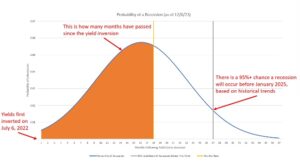Connecting the Dots:
Things I’ve Been Thinking About Lately

Irony and the Universe. About 30 years ago, I had a quirky insight into the old “meaning of life” question.
It came to me while I was sitting in a dental office, inhaling gas. Out of nowhere, this thought popped into my half-delirious mind – a voice that said: “Mark, I know how much you want to know it, so I’m going to tell you the secret now… Life is a joke laughing at itself!”
That was it. Nothing more. An explanation of the universe that might have been tucked in a fortune cookie. But, given my state of mind at the time, it felt profound. And true. It felt like a revelation. I was so excited that I had to restrain myself from jumping out of my chair and announcing it to my dentist, his staff, and everyone sitting in the waiting room.
We’ve all had ephemeral illuminations. They come to you. You get excited. But by the following day, your mind has returned to its former, stable perch. And the thought has ballooned into something farcical or shriveled into something embarrassing.
Not in this case. I’ve thought about that “secret” countless times since then. And it still feels true. It is always a helpful way to look at whatever prompted the thought in the first place.
Irony, I’ve come to believe, is a divine gift. It’s nature’s way of helping us understand the infinitely varied and constantly surprising ways that our lives confound us, especially when we think we have everything figured out.
Irony reminds us that we don’t know nearly as much as we want to believe we know, and have much less control over our lives than we would like to have.
Irony takes away certainty, but it gives back, or can give back, something better: self-acceptance.
Why I Don’t Serve on Pro-Bono Committees. Have you ever served on the board of a condo association? Or a charitable foundation?
If you have, you know how terrible it can be.
Six or eight intelligent people sitting around a table, most of whom have been successfully running large businesses or government bureaus or academic departments for decades. It’s a new board. And each member is willing and eager to provide his/her immense wisdom to guide the meeting towards fruitful decisions.
A half-hour later, tensions are rising. Another thirty minutes passes, and they have been unable to agree on agenda item one.
I’ve been a board member of both a college department and a local museum. The former was at first hopeful but ultimately frustrating and wasteful. The latter was a downright horror show. Initially, I explained away my disappointment by telling myself that the committee didn’t have the right mix of people. But eventually, I figured out the real reason committees like these don’t work: They are egalitarian.
Yes. That’s why they fail. It’s because they are decision-making groups where everyone has an equal say.
This realization is part of a much larger theme that I’ve written about (and will continue to write about): the very bad idea that equality is a good that we should strive for.
In the case of do-good boards and committees, when you allow everyone to have an equal say, what you get is endless bickering and mostly bad decisions. The reality is that in order for any group to work effectively, a hierarchy of power is necessary.
In my business life, I’ve always been happy to attend committee meetings so long it was clear that our discussions were going to be guided by some sort of hierarchy, whether formal or informal, stated or assumed.
Having a hierarchy isn’t a guarantee that the meeting will run smoothly and productively. But running a meeting without a hierarchy makes failure – either immediately or eventually – a certainty.






